The kuhane moved withershins along the night side of Easter
Island and the Sun moved from east to west on the northern
side of the island. At Te Poko Uri she made a special
announcement by saying A
Hau Maka I Hiva instead of A Hau Maka
O Hiva.
As the letter O should remind us of the form of an egg we can
guess the letter I should here denote its opposite:
... Long ago in the very beginning of time there dwelt within a
shell an infant god whose name was Ta'aroa. He was
Ta'aroa the unique one, the ancestor of all gods, the
creator of the universe whose natures were myriad, whose
backbone was the ridgepole of the world, whose ribs were its
supporters. The shell was called Rumia, Upset.

Becoming aware at last of his own existence and oppressed by a
yearning loneliness Ta'aroa broke open his shell and,
looking out, beheld the black limitless expanse of empty space.
Hopefully, he shouted, but no voice answered him. He was alone
in the vast cosmos ...
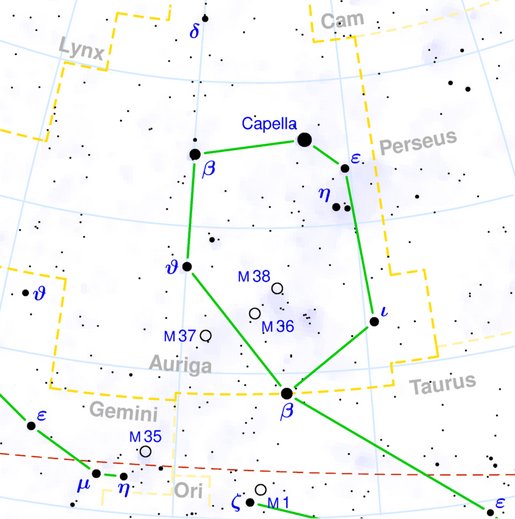
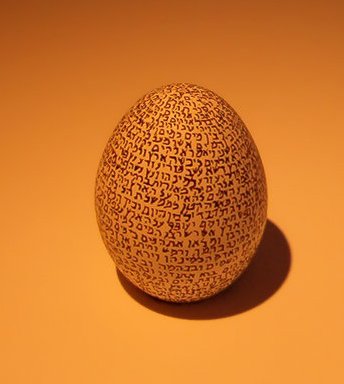
|
Nga Kope Ririva Tutuu Vai |
- |
|
365 |
A Te Taanga |
|
Te Pu Mahore |
1 |
-
13 |
-
378 |
A Hau Maka O Hiva
|
|
Te Poko Uri |
2 |
-
26 |
-
391 |
A Hau Maka I
[Sic!]
Hiva |
|
Te Manavai |
3 |
-
39 |
-
404 |
A Hau Maka O Hiva |
|
Te Kioe Uri |
4 |
-
52 |
-
417 |
|
Te
Piringa Aniva |
5 |
-
65 |
-
430 |
|
Te Pei |
6 |
-
78 |
-
443 |
|
Te Pou |
7 |
-
91 |
-
456 |
|
Hua
Reva |
8 |
-
104 |
-
469 |
|
Akahanga |
9 |
-
117 |
-
482 |
|
Hatinga Te Kohe |
10 |
-
130 |
-
495 |
|
Roto Iri Are |
11 |
-
143 |
-
508 |
|
Tama He Ika Kino He Ihu Roroa |
12 |
- 156 |
- 521 |
- |
|
One Tea |
13 |
- 169 |
- 534 |
A Hau Maka O Hiva |
|
Hanga Takaure |
14 |
- 182 |
- 547 |
|
Poike |
15 |
- 195 |
- 560 |
|
Pua Katiki |
16 |
- 208 |
- 573 |
|
Maunga Teatea |
17 |
-
221 |
-
586 |
|
Mahatua |
18 |
- 234 |
- 599 |
|
Taharoa |
19 |
- 247 |
- 612 |
|
Hanga Hoonu |
20 |
- 260 |
- 625 |
|
Rangi Meamea |
21 |
- 273 |
- 638 |
|
Peke Tau O Hiti |
22 |
- 286 |
- 651 |
|
Maunga Hau Epa |
23 |
- 299 |
- 664 |
|
Oromanga |
24 |
- 312 |
- 677 |
|
Hanga Moria One |
25 |
- 325 |
- 690 |
|
Papa O Pea |
26 |
- 338 |
- 703 |
|
Ahu
Akapu |
27 |
-
351 |
-
716 |
|
Te Pito O Te Kainga
|
28 |
- 364 |
- 729 |
Presumably this was to draw our attention to the Pleiades, for
according to the time-frame of Bharani they (Tau-ono) began to rise
heliacally in day 471 (= 1½ * 314) - i.e. according to the
Julian calendar.
500 (= 365 + 135) was the day number for May 15 in the
Gregorian calendar at the time of rongorongo. 500 - 41 = 459
was the corresponding place at the time of Bharani. In the
Julian calendar this was day number 459 + 12 = 471 = 364 + 107.
The kuhane station Te Poko Uri presumably began at right
ascension day *14 (according to the epoch of Bharani and the
Gregorian calendar structure), and *14 +
*365 = *379 = 459 ("April 4) - 80.
459 ("April 4) + 12 (the day difference between the Julian and
Gregorian calendars) = 471 (Vaitu Nui 4) = 92 (= 80 + 12)
+ 365 + *14 (the first day of Te Poko Uri).
Poko. 1. Fragrant; to
smell, to give off a smell: he-poko te eo, it gives off a
pleasant smell. 2. To hunt, to catch with a trap, to snare.
He-kî e Tori: maaku-á e-ea ki te manu, e-poko i te po i ruga i
te opata. Tori said: I shall go and catch birds at night, up
on the cliff. 3. Thunder (also hatutiri). 4. (Also:
pokopoko.) Hollow, hole, depression, any deep, concave
object; to leave in a hole, in a depression. Pokoga,
chasm; summit. Pokohata, female rat: kio'e pokohata.
Pokopoko, woman bent under the weight of her years: vî'e
pokopoko. Vanaga. 1. Sound of the sea; tai poko,
breakers. Pokopoko, to slap water. Mgv.: pokokina,
resonant, clear-toned. Mq.: poko, to slap the water in
imitation of drumming; pokokina, sound of water. 2. Rut,
beaten path. P Pau.: poko, hollow; pokopoko,
concave, to excavate. Mgv.: poko, to dig, to excavate, to
hollow out. Mq.: pokoko, to crack open; pokona, to
hollow out, to excavate. Ta.: poópoó, hollow, deep. 3.
Infernal; pokoga, hell, infernal cave; topa ki te
pokoga, to damn (lit: to go down to hell.) Mq.: pokona,
cavity, hole. Churchill. Pokopoko: 1. Womb. PS Sa.:
po'opo'o, clitoris. Mq.: pokopoko, pudendum muliebre.
2. Pokopoko vae, footprints. 3. Concave, deep,
ditch, mysterious; pokopoko ihu, nostril (Ta.:
poópoó ihu); pokopoko ke, fathomless;
pokopoko taheta, concave. Hakapokopoko, to
deepen. Chuchill.
|
MARCH 7 |
8 |
9 |
10 |
11
(*355) |
12 (436) |
13 (72) |
 |
 |
 |
 |
 |
 |
 |
|
(229 + 229) |
Gb8-18 (230) |
Gb8-19 (460) |
Gb8-20 |
Gb8-21 |
Gb8-22 |
Gb8-23 |
|
Te Pu Mahore (1-13) |
Te Poko Uri (14-26) |
|
ALGENIB PERSEI
= α Persei
(50.0),
ο
Tauri (50.2),
ξ
Tauri (50.8)
GIENAH (γ Corvi)
|
σ Persei (51.6) |
no star listed (52) |
ψ Persei (53.1)
ACRUX (α CRUCIS)
|
δ Persei (54.7) |
Al Thurayya-27 (Many
Little Ones) /
Krittikā-3 (Nurses of
Kārttikeya) /
TAU-ONO (Six Stones)
ATIKS = ο Persei,
RANA (Frog)
= δ Eridani
(55.1),
CELAENO (16 Tauri),
ELECTRA (17), TAYGETA
(19),
ν Persei
(55.3),
MAIA (20), ASTEROPE
(21), MEROPE (23)
(55.6) |
Hairy Head-18 (Cockerel)
/
Temennu-3 (Foundation
Stone)
ALCYONE
(56.1),
PLEIONE
(28 Tauri),
ATLAS
(27 Tauri)
(56.3) |
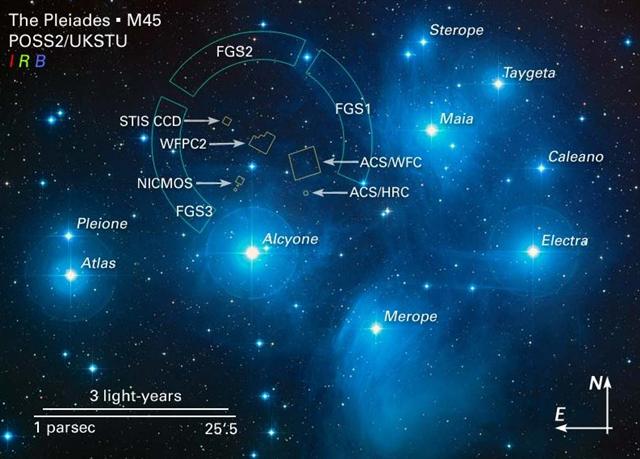 |
|
May 10 (*50) |
11 |
12 |
13 |
14
(499) |
15
(365 + 135) |
16 (136) |
|
°May 6 (*46) |
7 |
8 |
9 |
10 (130) |
11 |
12 |
|
'April 13 (*23) |
4-14 (104) |
15 (470) |
16 (314 * 1½) |
17 (16 * 29½) |
(471
- 363) |
19 (*29) |
|
"March 30 |
31 |
"April 1 (*11) |
2 (92) |
3 |
Vaitu Nui
4 (471) |
5 (460) |
|
354 |
355 |
356 |
357 |
499 - 141 |
471 - 16 * 7 |
360 = 460 - 100 |
|
CLOSE TO THE FULL MOON: |
|
SEPT 6 |
7 |
8 |
9 (*172) |
10 |
11
(254) |
12 (72 + 183) |
|
ALKALUROPS
(The Herdsman's Lance) =
μ
Bootis
(233.1),
ED ASICH (Male Hyena) =
ι
Draconis
(233.2) |
NUSAKAN
(Pauper's Bowl) = β Cor.
Bor.
(234.0), κ¹ Apodis
(234.3), ν Bootis
(234.7), ζ Librae
(234.9) |
θ Cor. Borealis (235.3),
γ Lupi (235.6),
GEMMA
= α Cor. Bor.,
ZUBEN ELAKRAB
= γ Librae, QIN = δ
Serpentis, ε Tr. Austr.
(235.7), μ Cor. Borealis
(235.8), υ Librae
(235.9)
SIRRAH (α Andromedae) |
φ Bootis (236.2), ω
Lupi, τ Librae (236.3),
ψ¹ Lupi (236.7), ζ Cor.
Borealis (236.9) |
κ
Librae (237.2),
ι
Serpentis (237.4),
ψ²
Lupi,
ρ
Oct.
(237.5), γ Cor.
Borealis, η Librae
(237.7),
COR
SERPENTIS
= α Serpentis
(237.9)
*196.0 = *237.4 - *41.4 |
π
Cor. Borealis,
UNUK ELHAIA (Necks of
the Serpents) =
λ
Serpentis
(238.1),
CHOW =
β
Serpentis
(238.6) |
κ
Serpentis (239.3),
δ
Cor. Borealis,
TIĀNRŪ =
μ
Serpentis
(239.5),
χ
Lupi, (239.6),
ω
Serpentis (239.7),
BA (= Pa) =
ε
Serpentis,
χ
Herculis (239.8).
κ
Cor.
Borealis, ρ Serpentis
(239.9) |
|
...
In other words, the
ancient Druidic religion
based on the oak-cult
will be swept away by
Christianity and the
door - the god Llyr -
will languish forgotten
in the Castle of
Arianrhod, the Corona
Borealis. This helps
us to understand the
relationship at Rome of
Janus and the White
Goddess Cardea who is
... the Goddess of
Hinges who came to Rome
from Alba Longa. She was
the hinge on which the
year swung - the ancient
Latin, not the Etruscan
year - and her
importance as such is
recorded in the Latin
adjective cardinalis
- as we say in English
'of cardinal importance
- which was also applied
to the four main winds;
for winds were
considered as under the
sole direction of the
Great Goddess until
Classical times ...
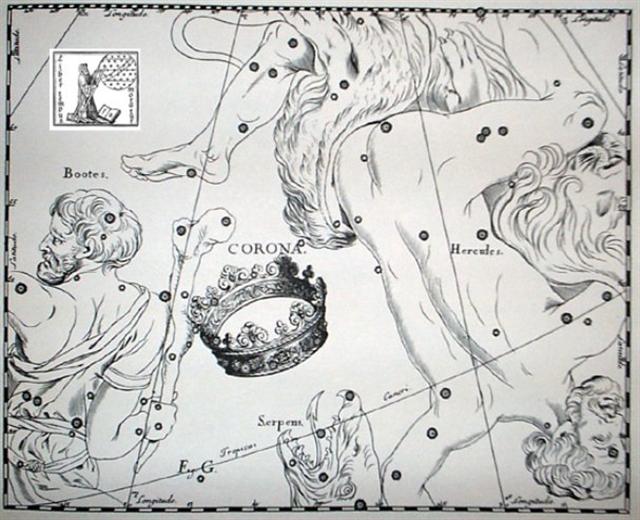 |
|
Nov 9 |
10 (314) |
11 ('235) |
*(8 * 29½) |
13 |
14 |
15 |
|
°Nov 5 (*329) |
6 (310) |
7 |
8 |
9 |
10 |
11 |
|
'Oct 13 |
14 |
15 (288) |
16 |
17 (*210) |
18 |
19 |
|
"Sept 29 |
30 (*193) |
"Oct 1 |
2 |
Tangaroa Uri 3 (288) |
4 |
5 (278) |
|
*92 |
*193 - *100 |
*235 - *141 |
*95 |
*96 |
*97 |
*98 |
Which means the Pleiades should have been visible close to the Full Moon
in day 471 - 183 = 288.
... In view of the almost universal
prevalence of the Pleiades year throughout the Polynesian area
it is surprising to find that in the South Island and certain
parts of the North Island of New Zealand and in the neighboring
Chatham Islands, the year began with the new Moon after the
yearly morning rising, not of the Pleiades, but of the star
Rigel in Orion ...
Perhaps at Te Poko Uri the kuhane implied that in
Hiva - the ancient homeland - it was the Pleiades who
determined where the new year was beginning. King Hau Maka was sleeping in Hiva
and therefore his dream-soul ought to have had Hiva as her frame of reference.
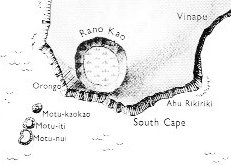
Thus it was probably not Virgo who was visible in
that part of the night sky which was corresponding to the southwestern corner of Easter Island;
instead it was the
Pleiades. And Mirach (the Girdle of Andromeda) was 40
right ascension days earlier than the Many Little Ones (Al
Thurayya).
Tangaroa Uri 3 (288) - 40 = 248
(Hora Iti 24) and
"October 3 (276) - 40 = 236 (= 8 * 29½) was at "August 24
(248 - 12):
|
JULY 31 |
AUG 1 |
2 (214) |
3 |
4 (*136) |
5 |
6 |
|
... Once upon a time there was an old woman who
owned a great potato field (mara) where she
planted her potatoes in spring and harvested them in
autumn. She was famous all around for her many
varieties of wonderful potatoes, and she had enough
of them to sell at the market place. She planted her
potatoes 7 in a row, placing her foot in front of
her as a measure from one potato to the next. Then
she marked the place with a bean - which would also
give nourishment to the surrounding potatoes. Next
she changed variety and planted 7 more followed by
another bean, and this was the pattern she followed
until all her 214 varieties had been put down in
their proper places. She had drawn a map which she
followed and from where each sort of potato could be
located at the proper time for its harvest ... |
 |
 |
 |
 |
 |
 |
 |
|
Ga5-22 |
Ga5-23 |
Ga5-24 |
Ga5-25 (500 - 135) |
Ga5-26
(136) |
Ga5-27 |
Ga5-28 |
|
Tama He Ika Kino He Ihu Roroa
(144-156) |
One Tea (157-169) |
|
δ
Muscae (196.5),
VINDEMIATRIX (Grape Gatherer)
=
ε
Virginis
(196.8) |
13h (197.8)
ξ¹ Centauri (197.1), ξ² Centauri (197.9 |
APAMI-ATSA (Child of Waters)
=
θ
Virginis,
ψ
Hydrae (198.5),
DIADEM
=
α
Com. Ber.
(198.9 |
AL
DAFĪRAH
(Tuft) = β Com. Ber.
(199.4)
*158.0 = *199.4 - *41.4 |
σ Virginis (200.4)
*159.0 = *200.4 - *41.4 |
γ Hydrae (201.0), ι Centauri (201.4)
*160.0 = *201.4 - *41.4 |
Al Simāk-12 (Lofty) /
Chitra-14 (Bright One) /
Horn-1 (Crocodile) /
Sa-Sha-Shirū-20
(Virgin's Girdle) /
ANA-ROTO-3 (Middle pillar)
MIZAR =
ζ
Ursae Majoris
(202.4),
SPICA
=
α
Virginis,
ALCOR
= 80 Ursae Majoris
(202.7)
SADALMELIK (α Aquarii)
*161.0 = *202.4 - *41.4 |
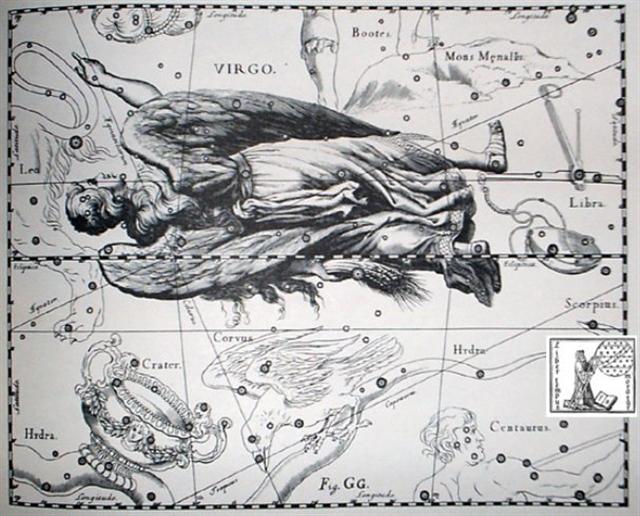 |
|
Oct 3 |
4 |
5 |
6 |
7 (*200) |
8 |
9 (282) |
|
°Sep
30 |
°Oct 1 |
2 |
3 (275) |
4 (*196) |
5 |
6 |
|
'Sept 6 |
7 (250) |
8 |
9 |
10 |
11 |
12
(*175) |
|
"Aug 23 |
24 (4 * 59) |
25 (237) |
Hora Iti 26 (251) |
27 |
28 |
Hora Iti 29 (254) |
|
135 |
136 = 236 -
100 |
137 = 214 - 77 |
138 |
139 |
140 |
141 = 282 -
141 |
|
... On the
twentieth day of the month of August ('Hora Iti')
they went to Papa O Pea. They all went and came to
Papa O Pea, looked around in Papa O Pea, and gave
the name 'Papa O Pea A Hau Maka'. They stayed five
days in Papa O Pea.
On the twenty-sixth day of the
month of August ('Hora Iti') they went from Papa O
Pea to Ahu Akapu. They all went and reached Ahu
Akapu. They looked around and gave the name 'Ahu
Akapu A Hau Maka'. They also saw (all of) Te Pito O
Te Kainga, looked around, and gave (the whole
island) the name 'Te Pito O Te Kainga A Hau Maka'.
[E:30]
They made camp [he noho] and
rested [he hakaora] at Ahu Akapu for two
days. On the twenty-ninth day of the month of August
('Hora Iti') they went on to Pu Pakakina. They
arrived, remained there, and gave the name 'Pu
Pakakina A Ira'. They remained one month in Pu
Pakakina.
[E:31]
... 232 ("August 20) + 10 + 2 =
244 (Hora Iti 20), I suppose. ... 1842 (my
assumed epoch for rongorongo) - 1582 (birth of the
Gregorian calendar) = 260 and 260 / 133 = ca 2 days.
I.e., "August 1 (213) could in my assumed Julian
calendar of the Explorers have been Hora Iti 13
(225). 15 * 15 = 225 = 213 + 10 (lost days in
1582) + 2 ... This means 244 (Hora Iti 20) + 5
(five days in Papa O Pea) = 249 →
right ascension day of Antares at the time of
rongorongo ... 249 (right
ascension day of Antares at the time of rongorongo)
+ 2 (days at Ahu Akapu)
= 251 (Hora Iti 26), and then 251 + 29
(one month in Pu Pakakina) = 280 (40
weeks). |
|
CLOSE TO THE FULL
MOON: |
|
JAN 30 |
31 |
FEBR 1 |
2 |
3 |
4 (400) |
5 (36) |
|
no star listed (14) |
1h (15.2)
β Phoenicis (15.1), υ Phoenicis, ι Tucanae (15.6), η
Ceti, ζ Phoenicis (15.7) |
Al Batn Al Hūt-26 (Belly of the Fish) /
Revati-28 (Prosperous) /
1-iku
(Field Measure)
MIRACH
(Girdle) =
β
Andromedae, KEUN MAN MUN (Camp's South Gate) =
φ
Andromedae
(16.0),
ANUNITUM
=
τ
Piscium
(16.5),
REVATI
(Abundant) =
ζ
Piscium
(16.9)
REGULUS
(α Leonis) |
ν Phoenicis (17.4), κ Tucanae (17.6)
*342.0 = *383.4 - *41.4
= *159.0 + *183.0 |
no star listed (18) |
ADHIL (Garment's Train)
=
ξ
Andromedae
(19.3),
θ
Ceti (19.7) |
KSORA
(Knee) = δ Cassiopeiae
(20.1), ω Andromedae (20.6), γ Phoenicis (20.8) |
|
April 4 |
5 (460) |
6 |
7 |
8 |
9 (*384) |
10 (100) |
|
°March
31 |
°April 1
(91) |
2 |
3 |
4 |
5 |
6 (*16) |
|
'March 8 |
9 |
10
(*354) |
11 |
12 |
13 (72) |
3-14 |
|
"Febr 22 (53) |
TERMINALIA |
24 (*340) |
25 |
26 |
27 |
28 |
|
*238 |
*239 |
*340 - *100 |
*241 |
*242 |
*384 - *141 |
*244 |
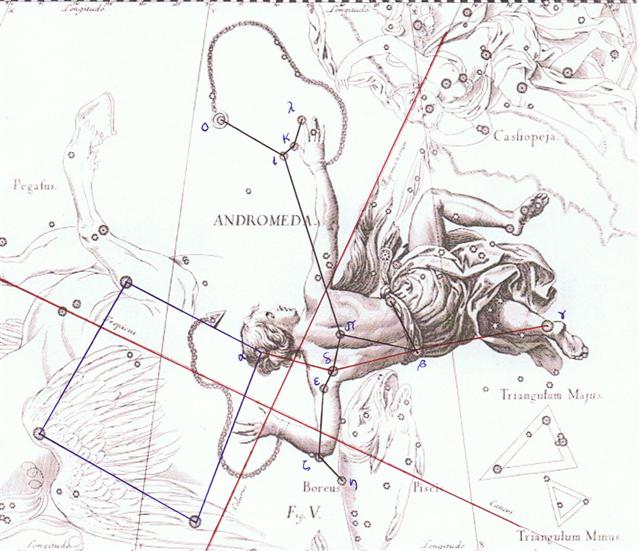 |
It rained for 40 days and 40 nights, as I remember it.
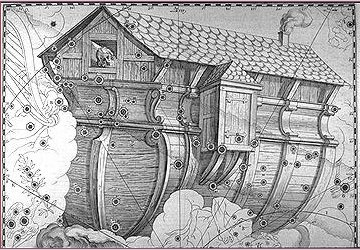
|











